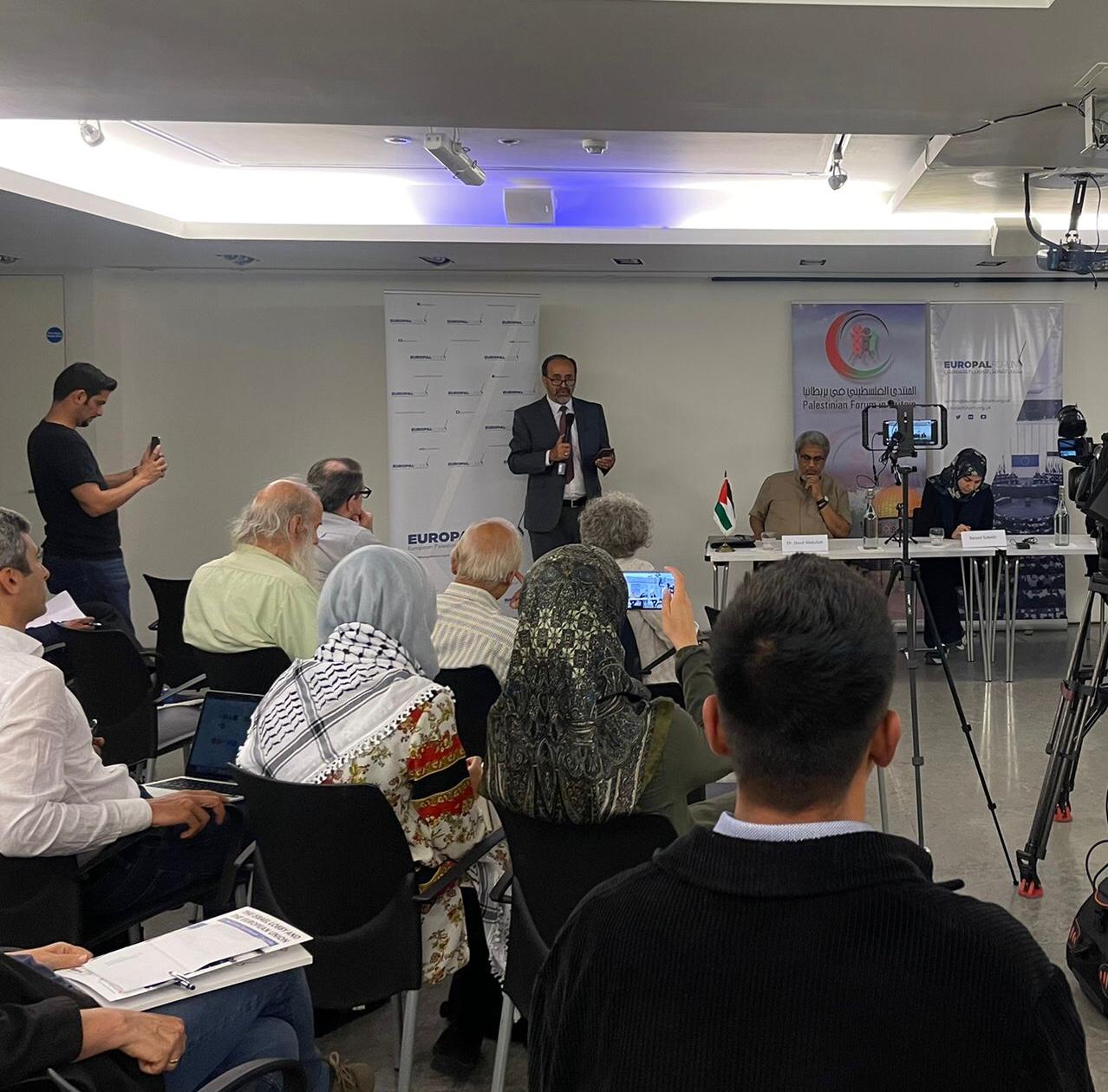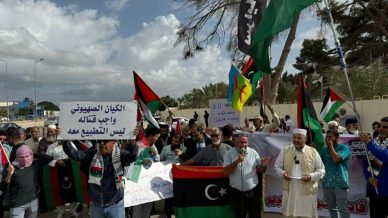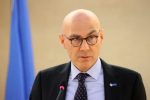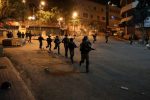On Thursday Palestinian Forum in Britain in cooperation with EuroPal Forum held a seminar at P21 Gallery in London titled ‘Faithwashing: How Interfaith Groups Are Being Used to Normalize Israeli Apartheid’.
The seminar sought to bring together a range of researchers and activists as well as members of faith groups in a discussion exploring how Israel and pro-Israel lobby actors are using interfaith alliances and dialogue as a means to normalize Israel’s apartheid practices illegal military occupation and violations against international law.
The speakers at the event were Director of Middle East Monitor (MEMO) Dr. Daud Abdullah and Rifat Odeh Kassis the General Coordinator of Kairos Palestine and founder of the Palestine section of Defense for Children International. The event was chaired by energy engineer and political analyst Batool Subeiti.
Opening the event Zaher Birawi the Chairman of the Palestinian Forum in Britain noted that the aim of the seminar was to raise awareness and collective consciousness about the increasing efforts of Israel and its supporters to use interfaith alliances as a prominent means through which to divide communities and reshape perceptions regarding Israel’s colonial and apartheid practices. Birawi made clear that the seminar was rooted in the idea that interfaith dialogue and organizing is not something negative but rather that interfaith cooperation must be fundamentally based on respect and humanist principles and not spearheaded or led by those who support or contribute to Israel’s colonial practices.
Building on Birawi’s points Batool Subeiti began her notes as chair by stating that the interfaith industry spearheaded by Israel and pro-Israel groups has long sought to push the notion that the reality on the ground in Israel-Palestine is a religious issue as opposed to a political one. This is centered on the fundamental belief according to Subeiti that if you do not support ethnic cleansing you are against a peoples’ religious rights. This has the effect Subeiti notes of turning the victims into perpetrators and the perpetrators into victims.
With this the first speaker of the evening – Dr. Daud Abdullah – concentrated his segment on the link between ‘faithwashing’ and the Boycott Divestment and Sanctions (BDS) Movement. Here Abdullah argued that the development of the BDS movement affected the strategic calculations of Israel and its supporters insofar as one of the recommendations to tackle BDS was interfaith cooperation and dialogue.
At the heart of ‘faithwashing’ according to Abdullah is the ‘idea that Jewish-Muslim rivalry is something endemic something deeply rooted that cannot be erased and a reality that we have to deal with’. As explained by Abdullah however ‘this is not true and contrary to the historical facts’. Abdullah cites Muslim rule in Europe as a key example whereby Muslim Jewish and Christian communities lived amicably together.
Following on from Abdullah’s presentation Rifat Kassis spoke about the topic from the perspective of Palestinian Christians. Here Kassis noted that ‘there is definitely a need for interfaith cooperation to defuse tensions especially what is happening in Palestine now’. He added that ‘we should work on bringing more harmony to religion and civilization and when it comes to the holy land of Palestine there is more need for this cooperation’.
However importantly Kassis made clear that ‘there is a difference between interfaith dialogue and normalization’ and that ‘there is a big difference between being on the side of justice and the side of oppression’. Kassis added that interfaith dialogue should accept Palestinian resistance to Israel’s colonial practices and that such resistance should not be criminalized.












